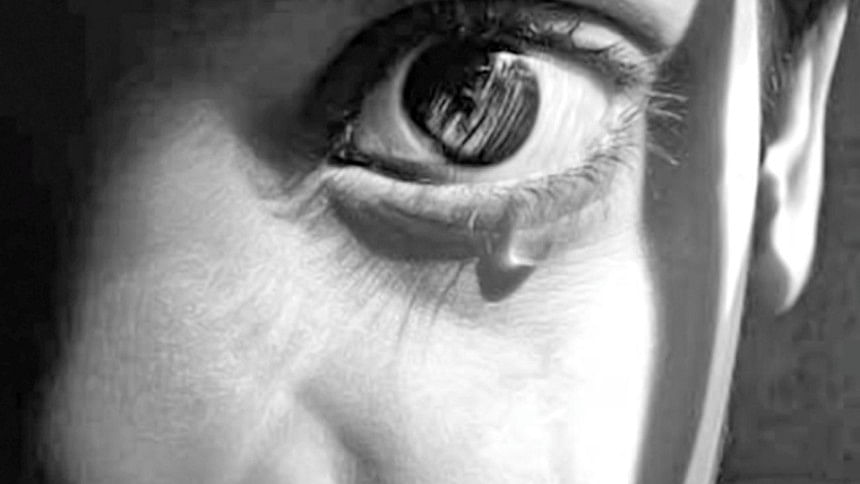Cruelty beyond measure and transferred trauma

There can be two instant reactions to the barbaric murders of three children -- Rakib, Rabiul and Shamim Ahmad -- following Rajon's killing. Your first impulse is to have the perpetrators done to death exactly in the similar manner that they had finished off their helpless preys. But the due process of law rules out instant justice. The ferocity with which crimes are committed cannot be matched by the law because it has to 'take its own course'.
The perpetrators might have applied the rule of jungle, but in the civilised world one cannot meet barbarism with barbarism. There the law is a step behind the commission of grievous crimes.
So, you have State Minister for Women and Children Affairs Meher Afroz Chumki talking of an inter-ministerial committee to monitor, at three months' interval, the status on the latest series of cases of child rights violations. The periodicity is a bit too longish for comfortgiven that the crimes are expected to be fast-tracked through speedy trial court for delivering convictions.
The other reaction you have is about the ironic portrayal of national image where the plus points are sadly negated by unforeseen minuses creeping up through the tiers of an impunity culture. People abroad scrounging newspapers around the world cannot explain the eerie nature of some of our crimes. They consider the phenomenon 'unfathomable' and even we, with all our resilience, can't help the self-questioning: 'Is this the same Bangladesh we have grown up knowing?'
Even Laos, Cambodia and Vietnam, which have grown out of the cusp of wars and internal conflicts, might be a stranger to the latest specimens of social crimes we have seen happening in the country.
Usually, you are warned of any grisly footage of a crime or barbaric atrocity before it is shown over the audio-visual media. You are told that there are disturbing scenes ahead and persons of weaker hearts and minds may not be able to withstand them, visually and mentally. So, beware. Even some pictures would be blurred (pixilated) to avoid shock and protect identity of the victim.
This decency to human sensibilities is mentioned just to highlight the parade of cruelties displayed on children and adolescents in successive bursts of medieval barbarities. Recall Rakib's decimation through a bestial means, Rabiul being hit by a crowbar as his skull fractured and an eye came out from the socket and teenager Shamim Ahmad, hung and tied to a tree, being brutally tortured. Such atrocities, allegedly on the ground of stealing, could not have been spur-of-the-moment incidents, they are a reflection of a deep-seated multi-fanged social malaise.
Hero worship has been replaced by villain adulation. Positive examples are not asserting themselves, rather retreating before exhibitionism and power play.
Everybody wants to be in charge of events, trying to expand the turf by striking fear in the heart of the weak and vulnerable. In the latest instances, the perpetrators acted as judge-jury-and-executioner, all at the same time.
In recent times, neuroscience research has demonstrated ways that 'the social world gets under our skin, permeating the way our brains process information.'
The social compass misdirected as it is, clearly needs readjustment to meet the contemporary challenges in the mental world. We have to rid ourselves of the circumstances that reduce people's sense of interdependence with each other, leading to anti-social behaviour. For this to happen, the first requisite is we try to genuinely understand each other and not turn our face against one another. Our ability to connect with each other is the first major step towards a change around.
Where we have grown up through the nurturing hands of compassion and fellow feeling, the social and community bonding is sadly at a discount. The value and respect for human lives have touched the lowest ebb. They must be salvaged to their original height through good governance and rule of law.
How relevant are the following words of wisdom: 'Everyone from Thucydides to Thomas Hobbes to John Adams wrote their histories and social theories following a common assumption: government is the necessary restraint on people who -- without it -- would tear each other apart.'
The writer is Associate Editor, The Daily Star.

 For all latest news, follow The Daily Star's Google News channel.
For all latest news, follow The Daily Star's Google News channel. 



Comments